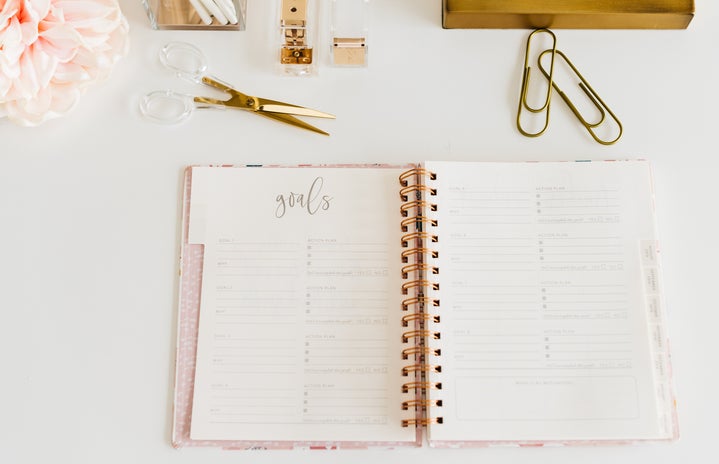“You do not just wake up and become the butterfly” -growth is a progress
There is a strong connection between eating disorders and obsessive-compulsive disorder. I will be sharing life lessons throughout my healing with dialogue. The thoughts are between my past self (before recovery) and my present self. I genuinely believe that personal stories discussing mental health are impactful since they are real, honest, and relatable.
Eating disorders are comprehensive mental illnesses. They are coping mechanisms that can be formed by unrealistic standards, diet culture, need for control, and negative self-talk. They are described as distorted thoughts and feelings around eating, exercise, body image, and affect life. Specifically, orthorexia is an obsession with healthy foods and or exercise, where it becomes unhealthy. Obsessive-compulsive disorder is related to orthorexia and other eating disorders because obsessions bring on an anxiety-affecting mental state that can lead to compulsion. A kind reminder that everyone’s journey is different; I just wanted to share mine and some lessons I learned.
As a key from here on out: 3 years ago: (black) Present day: (red)
Reframing Negative Thoughts to Positive:
- “I have to eat clean and healthy foods only.” You have to nourish to flourish. While some foods may be healthier than others, all food has value.
- “I must restrict now so I can eat with friends later.” The more you restrict, the more you create a negative relationship with yourself, food, your body, and experience guilt and negative thoughts.
- “Is this good or bad?” Welcome all foods into your diet. When labeling food you are allowing it to have power over you.
- “I must check labels to make sure how many calories I am having every day.” Nutrition labels and counting calories does not measure hunger. Being mindful and listening to your hunger allows you to trust your body.
- “I should measure and track my food so I am in control and don’t gain weight.” Tracking and controlling leads to fear around food and restriction. The more you listen to your body the more you understand foods you like and foods that make you feel good.
- “Did I eat too much sugar or salt today?” Look at the big picture. What foods did I enjoy today? Replace the fear of what ingredients or grams of sugar/salt with the texture, taste, and experience.
- “I can’t hang out with friends today because I already planned my workout, and I cannot miss or else I will be stressed.” Creating balance allows you to find joy, enjoy a variety of foods, and find movement that works for you. Most importantly, actually have fun with friends because you are living in the present!
- “I need to workout every day.” I’m so glad I allowed my body time to rest today or movement felt so good because I listened to my body!
- “The scale and my weight defines my worth.” You are more than just a body, your weight does not define you.
- “If I have junk food I will feel gross.” It is important to have foods that give you energy and nutrients that fuel your body and also make you happy and satisfied. Any food you may see as “junk” mindfully try to see it as energy and nourishment.
- “I look in the mirror and analyze different body parts negatively.” Write positive affirmations on your mirror and for every negative thought replace it with a positive around your body and what your body does to feel good. When body checking, think of what parts of your body that allow you to do daily activities you enjoy.
- “I am experiencing extreme hunger and I am so fearful that I will gain weight or overeat.” Weight gain is not a bad thing. Eat when you are hungry. Restriction may lead to labeling and change your relationship with food. Our bodies are smart and know what is best.
- “I am so bloated and uncomfortable.” Your body is healing and learning what it is like to be nourished, and it is completely normal. When you have unwanted stress around food and your body it is harder for food to be digested.
- “I am so stressed, I wish I was a normal eater.” You will be. It takes patience, love, and practice to cope and overcome.
- “I want to be toned, fit, and in control.” I am gaining balance and learning to love myself. Body weight or food quality does not define health. It is all in your mindset.
- “I’m struggling listening to my body and battling these thoughts.” All you can do is nourish your body and learn to accept it as it is now and the changes that may occur. You are amazing for being aware and learning about yourself.
- “I want to be perfect.” Nobody’s perfect. There is no such thing as being perfect. You are You. You are beautiful, powerful, and strong.
P.S.
Do you notice anything? Maybe the words “have,” “need,” “must”, and “should” show up a lot? These are called critical words and the more they are used, the more your mind believes you failed. Critical words also show up in obsessive-compulsive disorder thoughts when feeling the need to compulsively act on something. Instead, introduce phrases like “I can” or “I want” to be open and willing to accept uncertainty. A few questions I never asked myself: Am I really enjoying these clean foods, do I love my body, what do I love and enjoy doing? Am I avoiding anxiety and other important parts of myself in my life that I could work on?
If you are struggling, I recommend you try to begin questioning your beliefs and reflecting on what you do on a daily basis and what emotions come up. This is not your fault, and you deserve to forgive yourself. Dance and do yoga for body neutrality, begin to challenge fear foods by looking up recipes and trying them out with an open mind. Remember this could be a lifelong journey, but with so much growth and new chapters along the way. It is important to challenge fears, thoughts, and have a support system around you. I promise you, you will discover yourself, find your purpose, and who you are and see the beauty in the small things. You can overcome this, I believe in you. There will be many ups and downs but remember there is always a reset button and you can move forward. Here’s to embracing any part of the journey you are on right now and being a learner in life. You’re the greatest project you’ll ever work on.


